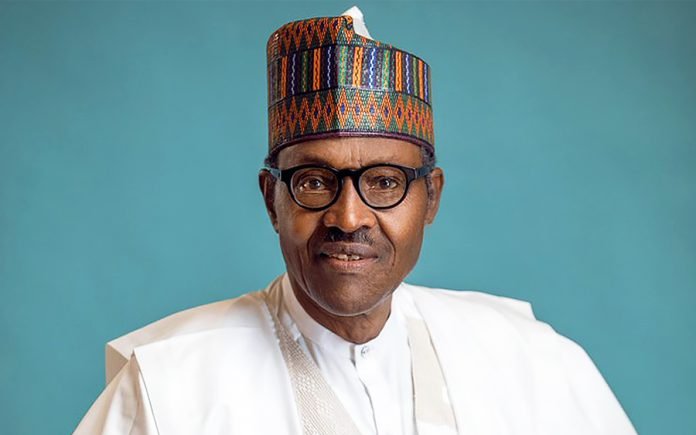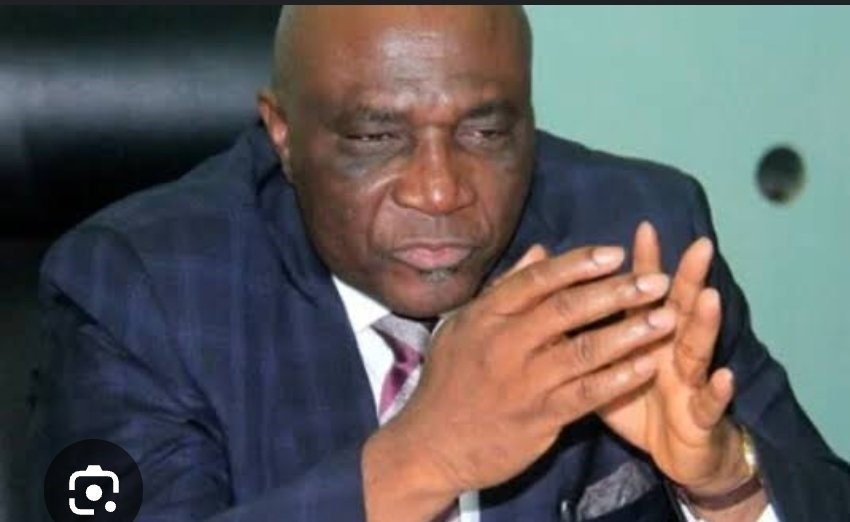As Muhammadu Buhari celebrates his 82nd birthday (he was born on 17 December 1942), his leadership legacy comes into focus. From his commitment to the poor and anti-corruption efforts to innovative initiatives in healthcare, agriculture, and infrastructure, Buhari’s impact on Nigeria is undeniable, says Garba Shehu – the ex-President’s Special Adviser on Media.
Muhammadu Buhari was sworn in as president following a decisive victory in the 2015 general elections. He was re-elected with an even bigger majority for a second consecutive term of office in 2019, underscoring the country’s trust and confidence in his administration.
As he marks his 82nd birthday, it is time to remember certain qualities that set him apart from the crowd.
Buhari is a very different leader with a strong attachment to the weak and poor, dedicated to improving their well-being and alleviating their suffering.
Politics and corruption go hand in hand in many countries, and Nigeria is no exception. The general perception is that if you are a politician, you must be corrupt.
He is known as “Mai Gaskiya”, the “truthful one“, for his honesty and simple lifestyle.
“The two most powerful warriors are patience and time.”
His campaign focused on a blend of economic development, security and the fight against corruption. His two terms ushered in a paradigm shift in governance with a strong focus on building the country’s long-delayed infrastructure and leadership through personal example.
Under Buhari, the country embarked upon remarkable initiatives to address multi-dimensional poverty. The country became the first on the continent to have a social security system. Several measures aimed at reducing poverty, the bane of the poor, were introduced through financial inclusion.
Buhari prioritised efforts towards universal health coverage. His administration successfully removed the country’s name from the list of nations with endemic polio.
In 2021, his administration launched a campaign for five million off-grid solar power connections in villages without electricity, impacting 20 million Nigerians without power more than 60 years after independence; took reliable, clean energy to the country’s major markets; electrified several federal universities and teaching hospitals; and set up a funding scheme for mini-grids in 100 hospitals across the country.
“Destroying the environment is more straightforward than rebuilding it.”
Agriculture was very close to the former president’s heart. Not only is he himself a farmer growing crops and tending to livestock, but President Buhari launched several initiatives in rice growing and 15 other agricultural communities, leading to domestic self-sufficiency in some and boosting exports and increased foreign earnings in others.
Buhari believed that transportation was a key path to the country’s transformation and embarked upon next-generation infrastructure reconstruction, reconstructing the nation’s major roads and bridges, airports, inland waterways, and seaports and making significant advances in the development of standard gauge rail.
Under the administration, the country improved the ease of doing business and the firm belief that the level of science and technology will, not far from now, determine the strength, even the country’s destiny. Buhari ensured a lot of money went to the ministry and the research institutions under it throughout the eight years.
The president’s lifetime story, starting in Daura, a semi-arid region and now within the seizure of the Sahel desert, taught him to be deeply passionate about the environment. His policy’s thrust was reactive and proactive: destroying the environment is more straightforward than rebuilding it.
“Buhari towers above many before him.”
In many respects, Buhari’s foreign policy initiatives have led to the realisation of the country’s goal of being a leading power in the West African sub-region and Africa as a whole.
Nigerian leaders are praised while in office and discredited even after tremendous contributions by them after they leave office. Knowing this, President Buhari would rather be silent on the criticism of his administration – much of it unfair – in the belief that the truth, like oil buried under the soil, has a way of coming to the top.
To use the words of Leo Tolstoy, the two most powerful warriors are patience and time.
I admit that all humans—including leaders—have limitations and shortcomings. As a leader, Buhari towers above many before him.
The former president told everyone at the hearing that once he handed over to his successor on May 29, 2023, he would be as far away from the nation’s capital, Abuja, as possible so as not to cast a shadow over the new administration and to give them the space to effectively take off and stabilise without distractions. Being willing to renounce power is his extraordinarily admirable trait.
Since leaving office, he has visited Abuja just twice: first, to officiate at the launch of Femi Adesina’s brilliant book “Working With Buhari” and second, as a guest of President Bola Ahmed Tinubu when they convened a meeting of the Council State.
Unlike others, the Nigerian constitution has created a platform for interaction between the present and past leaders of the country, the Council State. This body is set up to advise the sitting president on some important appointments and on sundry issues affecting the state.
“Being willing to renounce power is his extraordinarily admirable trait.”
Cooperation between serving and former Nigerian leaders is not new, although it is difficult to know how much cooperation exists between current and former presidents.
General Gowon, the oldest surviving former leader, appears to be the most helpful of the nation’s past rulers.
On the other hand, since leaving office, first as a military leader and subsequently as elected president after two terms, President Olusegun Obasanjo has called and written on every head of state after him to put him to shame or disgrace, and in some cases outrightly asking for his resignation or ouster in the next election. General Abacha alleged that Obasanjo had a hand in a coup plot against him and had him imprisoned.
“The truth, like oil buried under the soil, has a way of coming to the top.”
If President Buhari is not seen going about publicly for a while, it has to do with his expressed wish to be as far away as possible not to distract the new administration. He earnestly sympathizes with Tinubu in his challenging job of reforming the economy and all the other leaders in managing citizens’ expectations, much of which is difficult—if not impossible—to meet.
In the remoteness of Daura, he has found the atmosphere for a well-deserved rest, in silence and dignity and away from the predatory pressures of Abuja.
Buhari maintains a very simple daily routine of catching up with the news on radio and television each morning, enjoying the company of his grandchildren, meeting with scheduled guests, and taking a one—to two-hour walk around his expansive farm inspecting crops and livestock. An avid reader who must get all available newspapers, President Buhari now has plenty of time to read and watch his favourite TV shows.
As he marks his 82nd birthday, may he always be remembered and honoured?
The opinions expressed in this article are strictly those of the author and do not necessarily align with the views of JolibaLive News! or any of its staff members. The author is in no way associated with this online news blog.
Comment, Like 👍, share this article, and Follow us on our social media handles.









Hmmmmm! Whatever good he did or not has been overshadowed by the way he handled the 2023 elections. We jumped from ‘frying pan into fire’.
Which birthday! Good riddance to him and Co. I do not miss him.